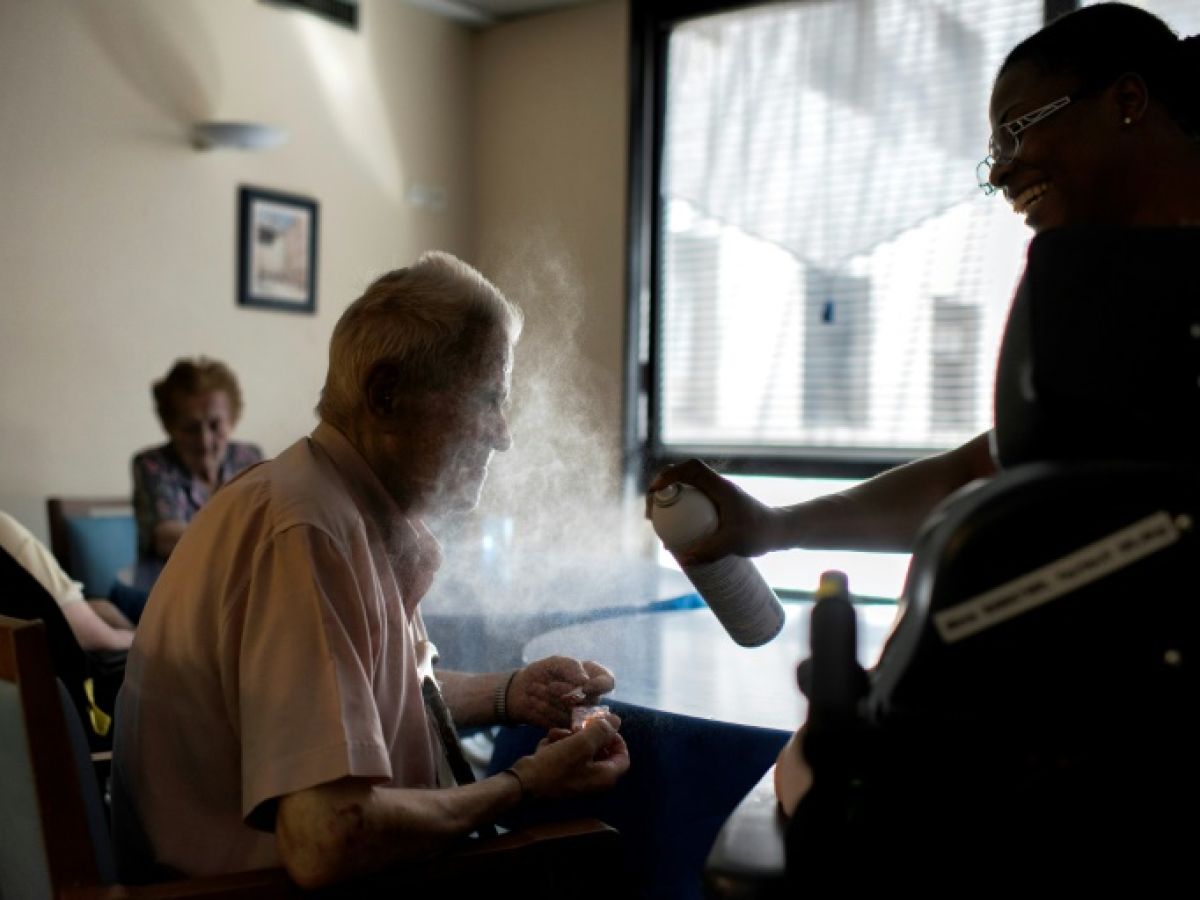Nurses spray the faces of a dozen seniors in the activity room of the Pierre Garraud geriatric hospital in Lyon, where staff work day and night according to a reinforced protocol during heatwaves.
A digital jukebox plays the Beatles' "Hey Jude" quietly, and a nurse plays dominoes with two wheelchair-bound patients in a large room kept at a pleasant 25 degrees.
These "resident patients," as management modestly calls the people "who end their lives here," are losing their autonomy but also suffer from serious illnesses requiring them to remain in a hospital environment, where doctors, nurses and nursing assistants are present 24/7.
At Pierre Garraud, a model establishment of the Hospices Civils de Lyon (HCL), the second largest public hospital group in France after the AP-HP in Paris, they benefit from a privileged setting: a magnificent park offering numerous shady spots, charming rooms overlooking a private garden kept cool by a thick wisteria, a cooling system by circulating cold water in the pipes...
"Families thank us because, unlike with conventional air conditioning, their elders don't catch cold or get sick because the air is blowing on them," boasts Sandrine Bô, geriatric health manager and manager of this pavilion.
- Chance -
Not all patients in public hospitals are equally fortunate.
In a response to the FA-FPH, Edouard Herriot's management acknowledged on Friday a "malfunction" in the "cooling system" and promised that mobile air conditioners, coolers and fans were "being delivered."
In Pierre Garraud, in her bedroom adorned with paintings and numerous photos of her children and grandchildren, 88-year-old Bernadette Fèvre-Coliard proudly demonstrates how she sets the thermostat to 19°C at night. "I sleep very well. And doctors, nurses, and other staff often come to see me because of the heatwave," she explains before opening the bay window onto her corner of the garden.
"Can I get you a glass of water?" asks Dr. Grégoire Ollagnier, a geriatrician and head of the long-term care unit at Pierre Garraud. "No, no, I don't need it right now," replies the frail old woman. "Are you sure?" he insists.
– Dehydration –
"Those who are most fragile or have neurocognitive disorders don't necessarily think about drinking, so we have to be proactive," says Dr. Ollagnier, who manages around ten doctors for the 234 beds at Pierre Garraud.

"We have a heatwave plan initiated by the Hospices Civils de Lyon," explains Ms. Bô: "strict instructions on hydration, we adapt the diet, we give them colder foods, more yogurts - one yogurt is equivalent to a glass of water -, and then ice creams, we also try to be in the pleasure food..."
"There are more rounds of drinks, and we're careful about what we wear," she also explains.
"With the heatwave, we're doing everything we can to keep residents from going out during the hottest hours of the day, and we're prioritizing indoor activities," adds Dr. Ollagnier. "On a medical level, we're paying attention to treatments because the effects of some can be somewhat harmful in the heat. We're adjusting diuretics and antihypertensives to prevent dehydration."
Has he noticed excess mortality with intense heat? "Since the first major heatwave in 2003, we've become much more aware of it, better trained. It happened in the past, but it's no longer the case," assures the practitioner.
